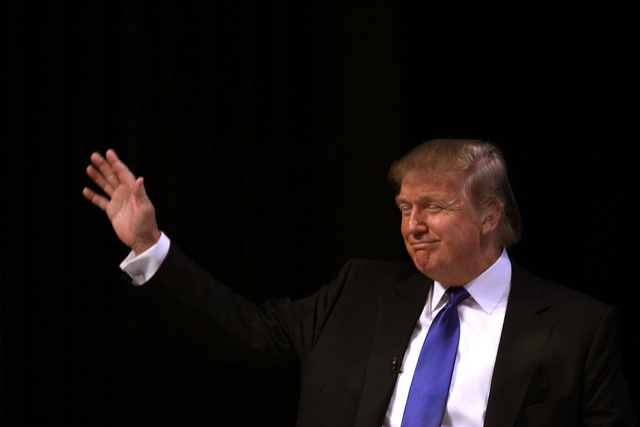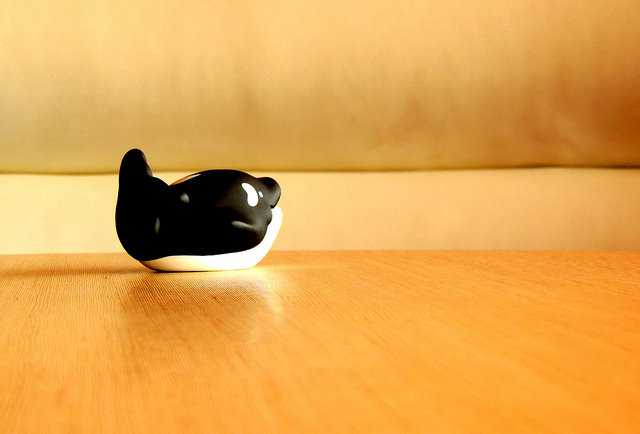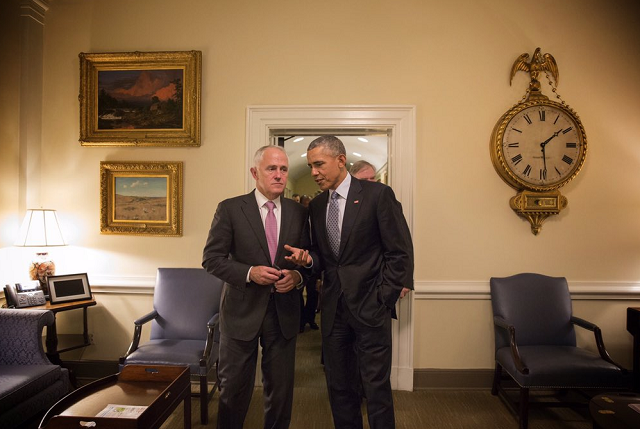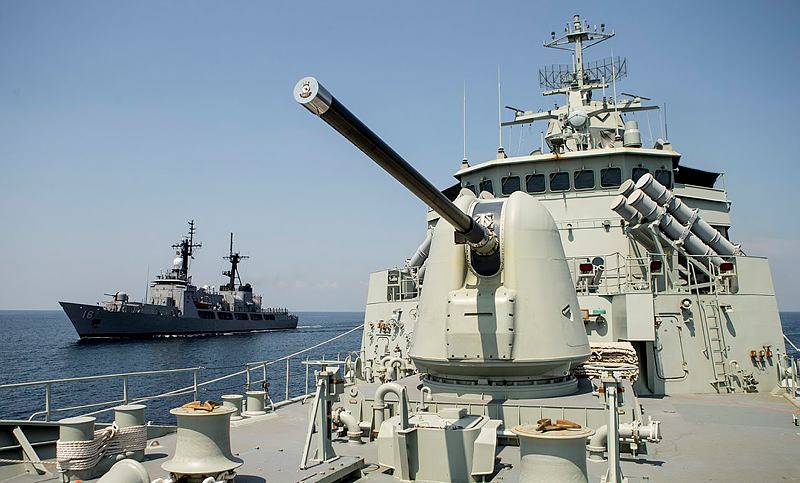ASPI suggests
 With Donald Trump holding a few too many cards for comfort, The Washington Post is playing its ‘Obama nostalgia’ hand with a ‘virtual museum’ of the 44th Presidency. The masthead has released two ‘rooms’ so far, all filled with a rich array of reflections, opinion, videos, stats, images and graphics. Room One, ‘The First Black President’, ranges from race relations and black incarceration through to Selma and giving dap. Room Two, ‘The Commander in Chief’, surveys Obama’s military moments: the oratory, the philosophy, the generals, the enemies, the drones.
With Donald Trump holding a few too many cards for comfort, The Washington Post is playing its ‘Obama nostalgia’ hand with a ‘virtual museum’ of the 44th Presidency. The masthead has released two ‘rooms’ so far, all filled with a rich array of reflections, opinion, videos, stats, images and graphics. Room One, ‘The First Black President’, ranges from race relations and black incarceration through to Selma and giving dap. Room Two, ‘The Commander in Chief’, surveys Obama’s military moments: the oratory, the philosophy, the generals, the enemies, the drones.
Newsweek carries a fascinating dive into Vladimir Putin’s personal habits, which have been compiled as a piece of fact-based fiction after the author concluded three years of interviews with former PMs, current Russian cabinet ministers, bureaucrats, aides and everyday citizens:
‘The President behaves as though he is made of bronze, as if he shines. He seems to know that they will flinch when meeting his eye. There is a silence around him. The voices of grown men change when they speak to him. They make their voices as low as possible. Their faces become solemn, almost stiffened. They look down: worried, nervous, alert.’
It’s always heartening to see established media outfits jump into new forms of storytelling, and more so when it’s coming from Australia’s public broadcasters. One eye-catching exemplar was illustrated by Eleri Mai Harris and published by the ABC this week: a quick telling of the Islamic State story, looking at the group’s roots and rise, it’s aspirations and authenticity. It reminded me of another standout effort from SBS last year, The Boat—an interactive adaptation of Nam Le’s acclaimed story of escaping war-torn Vietnam. With a film noir-esque opening and bleak black watercolour throughout, New York-based Aussie artist Matt Huynh tabled the emotive graphic novel for the 40th anniversary of the fall of Saigon.
Local research alert: the Perth USAsia Centre and the US Studies Centre have teamed up to survey public opinions across the Asia–Pacific in order to understand the power and influence of the US and China (PDF). And it’s been a busy time here at ASPI, with recent releases on Islamic State recruitment, the rationale for offensive cyber capabilities, the Aus-Africa Dialogue, and America’s rebalance to Southeast Asia, along with our Agenda for Change paper laying out the strategic choices facing the next Australian government.
Two pieces tied to the Second World War bubbled up this week. The first was a glowing obituary for Jane Fawcett, who spent her early career holed up at Bletchley Park breaking German codes. According to the The Economist, Fawcett was ‘the deb who sank the Bismarck.’ The second is some cracking July 1944 war reportage from The New Yorker’s archives—hello, Generation Kill…
Podcasts
A few weeks back we mentioned the recently-landed longform essay, The Citizen-Soldier. Its author Phil Klay sat down with Brookings’ Cafeteria podcast for a chat about the piece (43 mins).
Strategist readers will be interested to hear that Andrew Zammit, of The Murphy Raid and formerly of Monash University’s Global Terrorism Research Centre, recently unveiled the first episode (33 mins) of a new podcast brought together with Kate Grealy. The effort is set to cover issues as diverse as ‘LGBTI refugees, terrorism in Indonesia, media portrayals of Muslim women, gender politics in Indonesia, signals intelligence and counter-terrorism, conflict resolution in Papua, asylum seeker flows through Southeast Asia’, and plenty more. Bookmark it.
Video
The brains at Alphabet’s tech incubator, Jigsaw—formerly the ‘think/do tank’, Google Ideas—build some truly fascinating products. They’ve released the conflict zone data tool Montage, to join their existing tools like the anti-DDoS service Shield, the phishing protection Password Alert, and the web-sharing extension uProxy.
For their next trick Jigsaw have partnered with VICE to produce BLACKOUT, a five-part documentary exploring technology’s role in the struggle for free expression around the world. A new episode will be released each fortnight: Pakistan is out now (16 mins), to be followed by travels to Venezuela, Thailand, Belarus, and Eritrea.
Events
Canberra: Hip hip, hooray, and happy 10th birthday to New Mandala, the stellar site focused on the dynamic political and cultural affairs of Southeast Asia. The ANU will host a half-day block party/symposium in honour of NM and its region of focus. Make tracks for the Hedley Bull Centre next Thursday, 16 June.
The ANU’s Strategic and Defence Studies Centre along with the Sasakawa Peace Foundation USA and the JMSDF Command and Staff College will deliver a whole-day [#allmalepanel galore] conference on trilateral maritime cooperation between US–Australia–Japan. Get along on 27 June—should be a good show.



 We’ve not heard a great deal from senior figures in Tokyo’s political establishment about Australia’s decision to partner with France for the SEA 1000 project. That all changed this week when CSIS’s Japan Chair Michael Green hosted a high-level, cross-party coterie from the Japanese Diet. The group, which included two of Japan’s former Defence Ministers and one former Foreign Minister, convened for a chat on the
We’ve not heard a great deal from senior figures in Tokyo’s political establishment about Australia’s decision to partner with France for the SEA 1000 project. That all changed this week when CSIS’s Japan Chair Michael Green hosted a high-level, cross-party coterie from the Japanese Diet. The group, which included two of Japan’s former Defence Ministers and one former Foreign Minister, convened for a chat on the With the outcome of the long-awaited SEA 1000 Competitive Evaluation Process seeing France’s DCNS announced as the international design partner for the future submarines, Australia must now manage the diplomatic fallout with the two failed bidders: Germany and, especially, Japan. As
With the outcome of the long-awaited SEA 1000 Competitive Evaluation Process seeing France’s DCNS announced as the international design partner for the future submarines, Australia must now manage the diplomatic fallout with the two failed bidders: Germany and, especially, Japan. As



